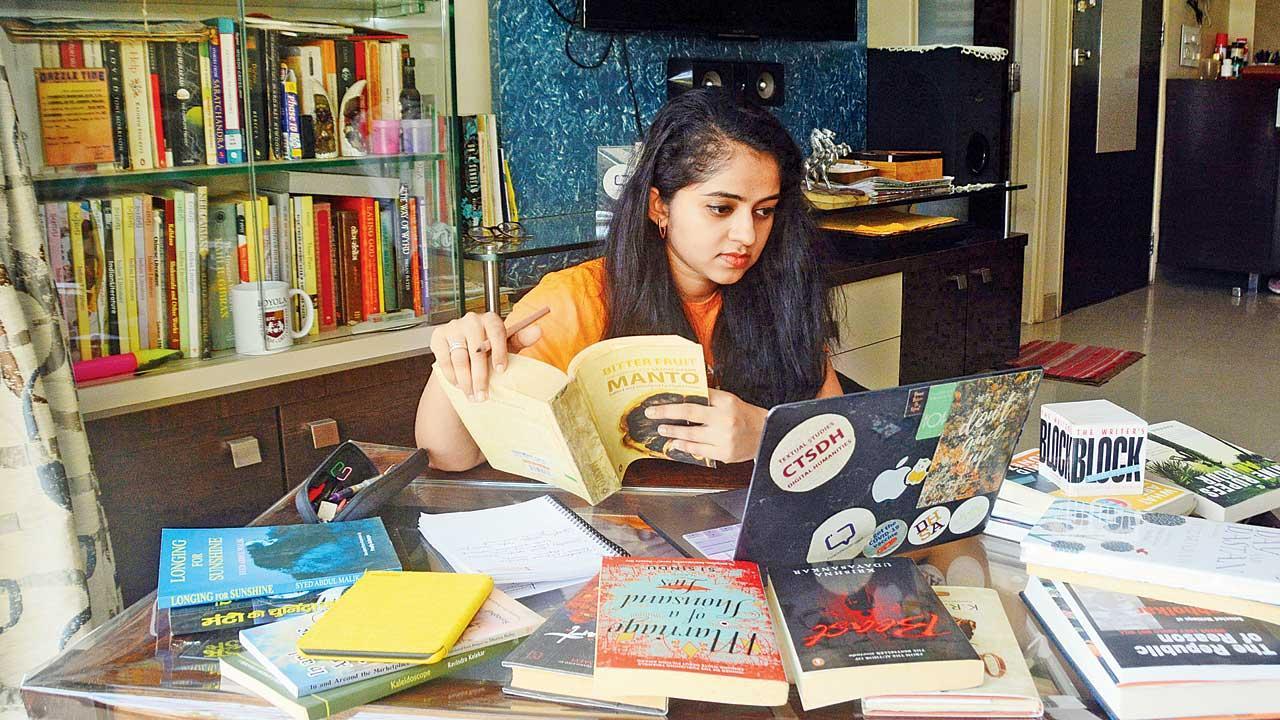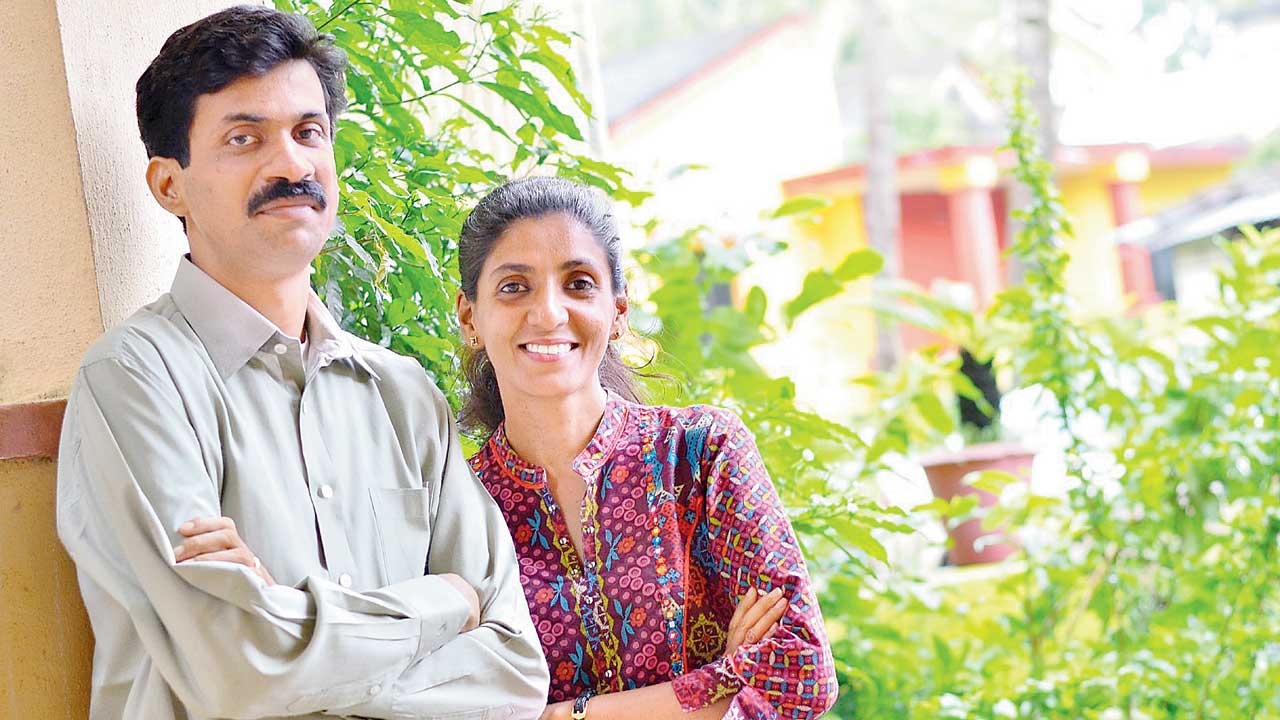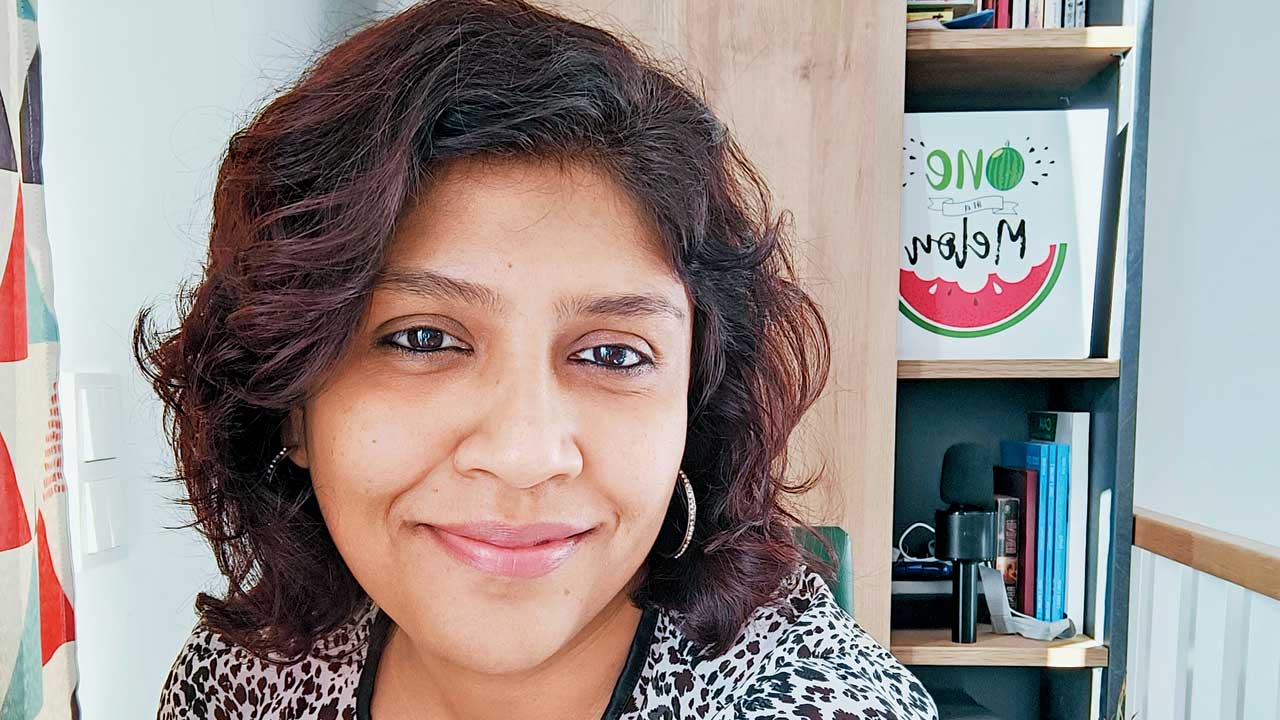A viral Twitter conversation recently asked the vital question: What is the Indian version of Goodreads? It may still be niche, but there are a few book lovers trying to offer you the same space for desi reads

Prakruti Maniar, 29, co-founded Purple Pencil Project in 2019 while pursuing her Masters in Chicago. The platform has 360 original book reviews and 600 essays. Maniar is also building a digital library. Pic/Satej Shinde
Prakruti Maniar was baffled when she was handed over English translations of the poetic verses of Gulzar and Harivansh Rai Bachchan’s iconic Hindi poem Madhushala during her Masters in English literature at Mithibai College back in 2017. The course module was to learn about Indian literature and Maniar chose to read the text in the original script itself. “Surprisingly, I too had not thought of Indian literature outside of English,” says the 29-year-old, adding, “because growing up in the 1990s meant having a command over English was a functional, economical and aspirational need. This came at the cost of uprooting and disassociating from our mother tongues.”
But that thought kept troubling Maniar. In the first year of her MA in digital humanities at Chicago’s Loyola University, the Malad West resident started work on a research paper titled Creating a Database of Indian Literature: Theory and Practice. This came from a realisation that the definition of Indian literature was highly westernised, looked at from an American and European perspective and did not feature Indian authors, women authors or regional language books even in a simple Google search. The language lover converted her words into a website, Purple Pencil Project (PPP), and hopes to make it the Indian Goodreads giving desi authors, the languages and indie publishers a deserving space and voice.
 Leonard Fernandes and Queenie Rodrigues, co-founders of Goa-based The Dogears Bookshop
Leonard Fernandes and Queenie Rodrigues, co-founders of Goa-based The Dogears Bookshop
“Goodreads, unfortunately, is not favourable for marginalised voices outside of America and Europe. Our works don’t even figure in the top five books in English or in the best romantic works,” says the 29-year-old. Maniar co-founded PPP in 2019, and since then, she has some 360 book reviews and a running tally of 600 essays, all around literature produced in India and by Indians. With two contractual editors on board and about 25 freelance reviewers of which about five to 10 are regular ones, Maniar invites not just professional, but any and everyone to review a vernacular language book. “We have a vetting process to meet editorial standards of course and essentials for a book review are pre-informed to the reviewer,” she says.
Apart from original book reviews, Maniar is also in the stage of migrating book data into a digital library. “Just like Goodreads, we want people to get a host of books by Indian authors and those published by smaller publishing houses, just by keying in a genre, like thriller, romance, sci-fi on our platform,” says the young entrepreneur who has a running excel sheet of more than 1,000 books. The task, however, is a daunting one, as it requires manual feeding in of data which comes with problems of finance and human resources.
 Priyanka Purkayastha
Priyanka Purkayastha
Writers Melon (WM) took off more than a decade ago in 2009 when Priyanka Purkayastha was still living in Mumbai. The now Germany-based book lover tells us, “I believed in the accessibility of literature and books and wanted to build an online community.” Around 500 book reviews have gone up the website since. The team of four to five, work virtually.” How WM works is simple. Content is created around three main pillars: books, authors and writing and the key element is to inspire members to read more.
She explains, “We use our community to generate honest and unbiased reviews for just released books. So one can find the books we are offering for review, apply for free review copies and if they are selected they receive the book and can upload the reviews online across platforms, including our website. We also believe that reading a full book, reviewing it, providing feedback and critique takes time and effort, so we also remunerate our reviewers by reward points in cash and badges.” For established authors and books selected by the team, the review program is free. “For new authors,” she says, “we have a marketing fee that sustains the community. So far we have kept the community free from any kind of ads from other brands.”
Co-owner of Goa-based Dogears Bookshop and self-publishing firm Cinnamon Teal Leonard Fernandes, believes Goodreads, an Amazon-backed company, is “susceptible to manipulation as it is not an independent entity”. “It is not tuned for the Indian scenario. The largest language selling in India is Hindi not English. Tamil, Malayalam, Marathi and Bengali too have a huge readership, but in the absence of an independently curated platform, many of these authors are losing out on visibility.”
Fernandes believes a reader telling another of his ilk about a good book holds more weightage than a publisher doing so. He mentions that Goodreads cannot include books when the book data is not publicly available, which is the case not only with many Indian language books, but also with many books by indie presses. “Also, publishers not bothering to update the International Standard Book Number (ISBN) impacts a book’s global visibility,” he says.
 Subscribe today by clicking the link and stay updated with the latest news!" Click here!
Subscribe today by clicking the link and stay updated with the latest news!" Click here!










